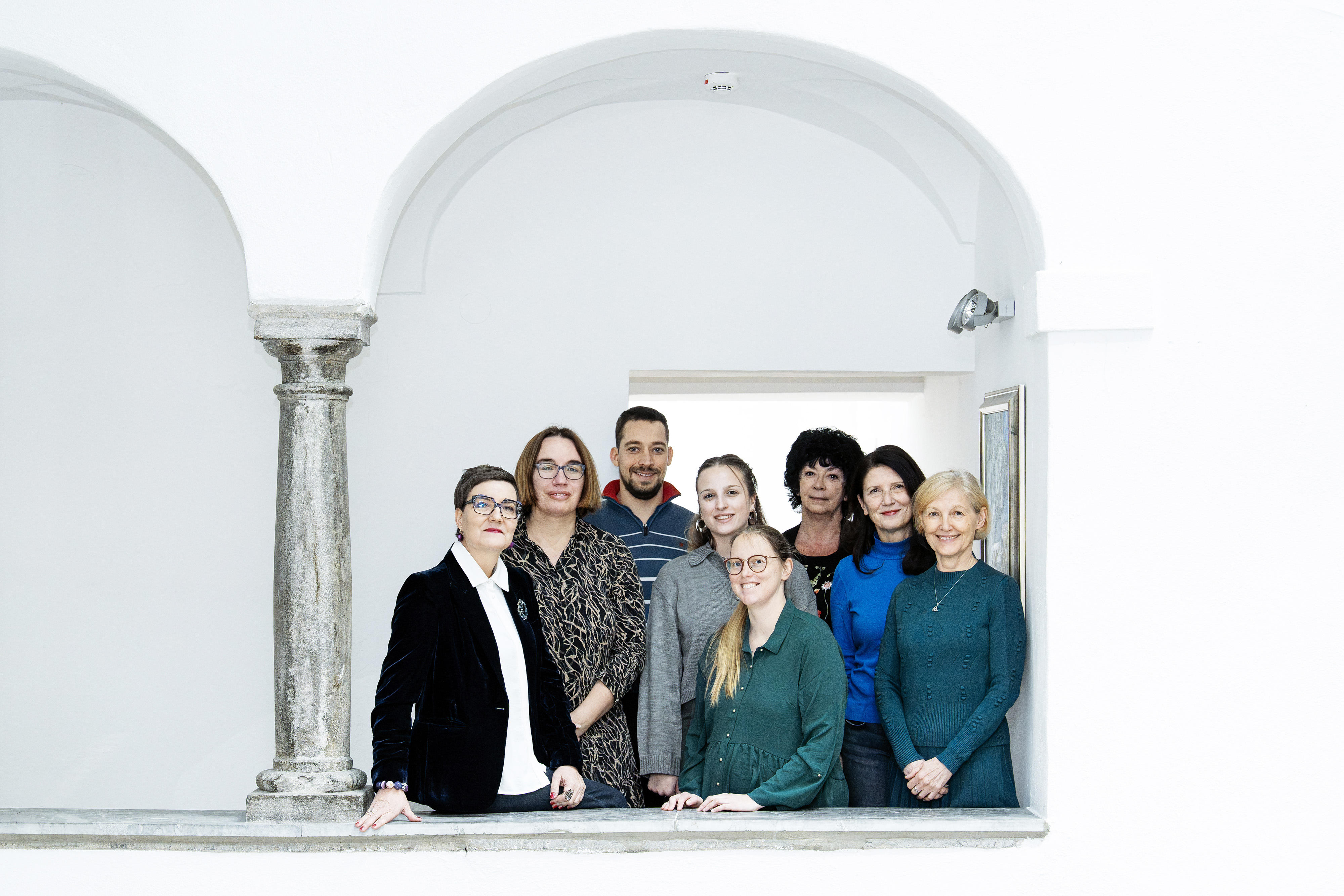SOCIOMEDICAL INSTITUTE ZRC SAZU:

RESEARCH TOPICS AND MISSION
- we investigate PSIHOLOGICAL WELLBEINGS;
- we respond to current and relevant socio-medical issues in the country;
- we focus on distress and being well;
- we employ an interdisciplinary, scientifically critical, and evidence-based approach;
- we cooperate with governmental and non-governmental professional institutions and other actors at local, national and international levels.
Distress and Being Well
The Sociomedical Institute ZRC SAZU takes an interdisciplinary, scientifically critical, and evidence-based approach that addresses contemporary sociomedical issues of distress and wellbeings. These issues are discussed through contrasting epistemologies, theorisations and methodologies of psychology, sociology, and anthropology. Research focuses on the experience of distress among adults – particularly among some socially deprived groups (e.g., immigrants) and the most at-risk occupational groups in terms of health (e.g., farmers and farm workers) – and on the design of various programmes to strengthen mental health. These issues are examined in the specific temporal and spatial contexts of recent and current radical social changes that are shaping people’s suffering. An academic approach is complemented by knowledge sharing and collaboration with governmental and nongovernmental professional institutions and other sectors and community actors at the local, national, and international levels.
SCIENCE COUNCIL
Academician Marjan Kordaš, Ph.D., academician Zdravko Mlinar, Ph.D., Nataša Dernovšček Hafner, Ph.D., Sanja Krilić Cukut, Ph.D. (science council president), Lilijana Šprah, Ph.D. (head of the institute).
BRIEF HISTORY
The Institute of Medical Sciences ZRC SAZU (now, the Sociomedical Institute) was established in November 19, 1981 when the Assembly of Slovenian Academy of Arts and Sciences set up its scientific-research organization. Although it initially existed only de jure, the Institute organised a series of discussions addressing controversial issues in the studies of medicine and health care. In 1994, the academics Dr. Lidija Andolšek Jeras, Dr. Lev Miličinski and Dr. Andrej Župančič prepared a study entitled Transformation of the Institute of Medical Sciences ZRC SAZU and delivered it to the then Ministry of Sciences and Technology. The study identified fertility behaviour (especially reproductive health) and suicide of the inhabitants of Slovenia as priority research areas. The research program (1999-2003) entitled Fertility Behaviour of Slovenians could be seen as a result and a realisation of that effort.
Several changes in the personnel structure of the Institute have taken place since 1999. As a result, the Institute’s research orientation has expanded to the fields of sociology, social anthropology, psychology, neurobiology, and social work. Distinctive characteristic of the Institute has become increasingly mirrored in its multidisciplinary approach, and finally, led to renaming of the Institute to the Sociomedical Institute in 2005. The study of social phenomena, such as low fertility, aging of the population, migration, auto-and hetero-aggressive behavioural patterns and substance abuse, has been set in a wide spectrum of research areas covering the fields of social sciences, humanities and medical sciences. On the one hand, these research areas have increasingly referred to the sociological and social-anthropological interpretation of classical demographic models and concepts, social-anthropological theory of ethnicity and nationalism, and on the other hand, to the personality, psychosocial, neuropsychological and neurobiological theories of social behaviour.
FORMER EMPLOYEES
- Dunja Obersnel Kveder, MA
- Barbara Rojnik, Ph.D
- Irena Rožman, Ph.D
- Andrej Kveder, Ph.D
- Urška Rajgelj, Ph.D
- Tatjana Novak
- Barbara Dolenc
- Karmen Urška Modic
- Melita Zver Makovec, Ph.D
- Urška Smrke
- Saša Zorjan
- Jana Šimenc, Ph.D
- Tjaš Debeljak